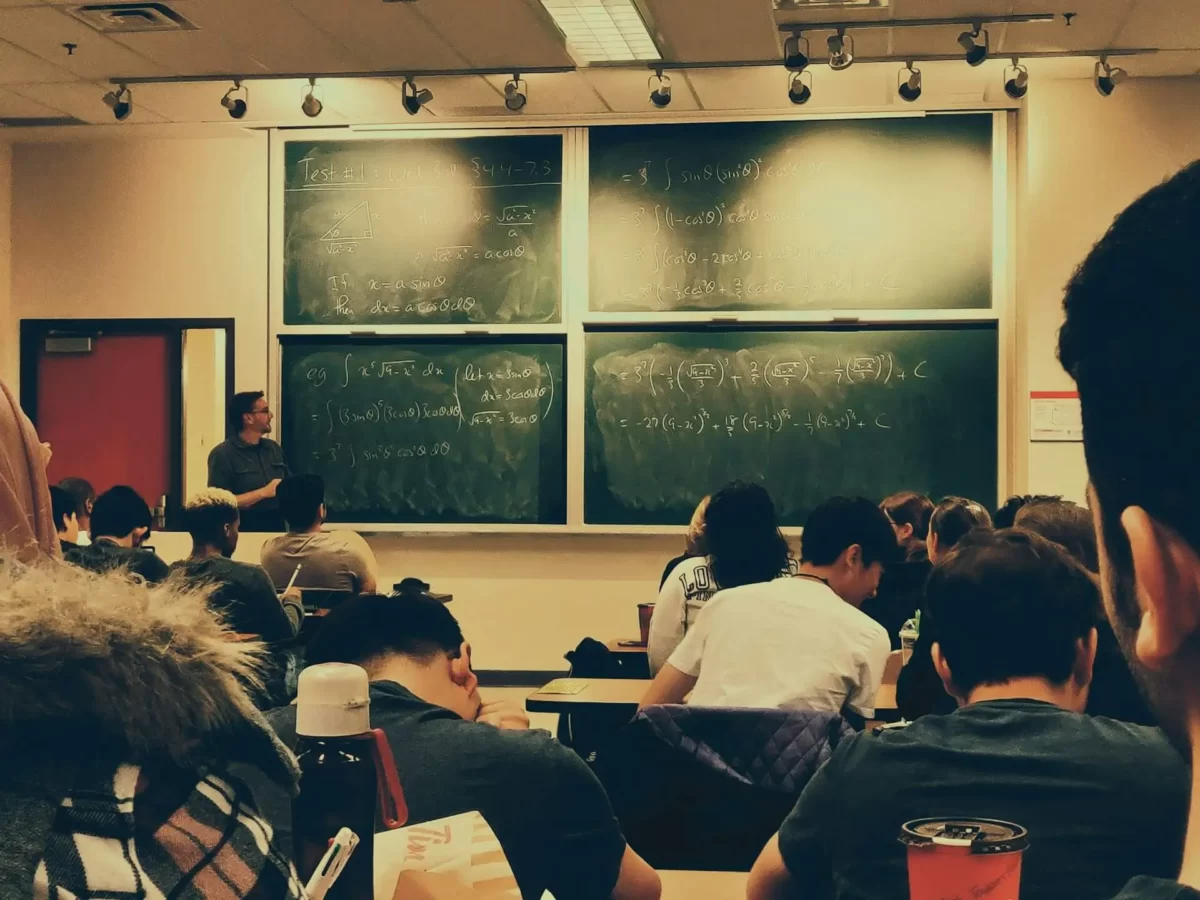Navigating the academic world can be daunting, especially when it comes to understanding the intricacies of the Grade Point Average (GPA). As an integral part of your educational journey, your GPA can open doors to prestigious universities, and scholarships, and even influence your future career prospects. In this comprehensive guide, we’ll unravel the concept of GPA, delve into what constitutes a ‘good’ GPA in high school and university, and explore its significance in different countries and job applications. We’ll also provide practical tips to improve your GPA, whether you’re a high school student or pursuing higher education. And for those who want to keep track of their GPA, I recommend using EasyGPACalculator, a user-friendly tool designed to help students like you achieve their educational goals.
What’s Considered a Good GPA in High School
Average High School GPA
In the realm of high school academics, the average GPA tends to hover around the 3.0 mark, equivalent to a B average. This figure, however, can vary based on factors such as high test scores, the school’s grading system standardized test scores, the curriculum’s rigor, and the students’ academic aspirations. A GPA of 3.0 is often considered the baseline for many college scholarships, and for college applicants, the average GPA is likely to be between 3.5 and 4.0.
Factors Influencing High School GPA
Several factors can influence a high school student’s GPA. These include the difficulty level of the courses accepted students have taken, the student’s study habits, their level of engagement in class, and their time management skills. External factors such as family background, socio-economic status, and even the school environment can also play a role. It’s important to remember that while these factors can influence GPA, they don’t determine it. With the right strategies and effort, high school students can improve their GPA regardless of their circumstances.
Improving High School GPA
Improving a high school GPA is a process that requires consistent effort and strategic planning. Here are some tips to help you on this journey:
- Attend Classes Regularly: Regular attendance is crucial as it ensures you don’t miss out on any important lessons or discussions.
- Participate in Class: Active participation can enhance your understanding of the subject and leave a positive impression on your teachers.
- Organize Yourself: Keep track of all your assignments, tests, and deadlines. Use a planner or digital tool to stay organized.
- Seek Help When Needed: If you’re struggling with a subject, don’t hesitate to ask for help. This could be from a teacher, a tutor, or even a classmate.
- Develop Good Study Habits: Find a study routine that works for you. This could include techniques like spaced repetition, active recall, and using mnemonic devices.
What’s Considered a Good GPA at University
Average University GPA
In the university setting, the average GPA tends to be around 3.1, which equates to a B average. This grade point average, however, can vary based on the university, the major, and the rigor of challenging courses in the curriculum. A GPA of 3.1 is often considered the baseline for many graduate programs and job opportunities. However, a higher GPA may be required for more competitive programs or opportunities.
Minimum GPA Requirements in Universities
The minimum GPA requirements in universities can vary widely. Some universities may have a minimum GPA requirement of 2.0 or 2.5 for admission, while more competitive universities may require a GPA of 3.5 or higher. These requirements can also vary based on the specific graduate program or major. For example, STEM programs graduate schools may have higher GPA requirements compared to humanities programs. It’s important for students to research the specific GPA requirements of the universities and programs they are interested in.
Improving University GPA
Very similar to most schools the above, improving a university GPA requires a strategic approach and consistent effort. Here are some tips to help improve your university GPA:
- Attend Classes Regularly: Regular attendance ensures you don’t miss out on important lectures and discussions.
- Participate in Class: Active participation can enhance your understanding of the subject and can also contribute to your grades in some classes.
- Plan Ahead: Keep track of all your assignments, tests, and deadlines. Use a planner or digital tool to stay organized.
- Seek Help When Needed: If you’re struggling with a subject, don’t hesitate to seek help. This could be from a professor, a tutor, or a study group.
- Develop Good Study Habits: Find a study routine that works for you. This could include techniques like spaced repetition, active recall, and using mnemonic devices.
GPA Requirements for Different Colleges
Understanding College Admission Criteria
College admission criteria, including GPA requirements, can vary significantly depending on the selectivity of the particular college itself. Highly selective colleges often have higher GPA requirements, reflecting their competitive nature. These institutions often look for students who have demonstrated academic excellence throughout their high school career. On the other hand, less selective colleges may have more flexible GPA requirements, allowing for a broader range of students to gain admission. It’s important for admitted students to remember that while GPA is a crucial factor in college career, colleges also consider other aspects such as extracurricular activities, leadership roles, and personal essays.
GPA Requirements for Top Colleges
Top colleges and universities often have college admissions officers have high GPA requirements. For instance, Ivy League schools and other top-tier institutions typically look for students with a GPA around 3.8 or 3.9, or even a perfect 4.0. These high standards reflect the academic rigor and competitive nature of these institutions. However, it’s important to note that a high GPA alone does not guarantee admission to top schools, as these colleges also value diverse experiences, unique perspectives, and a demonstrated passion for learning.
GPA Requirements for Less Selective Colleges
Less selective colleges often have more flexible GPA requirements. While the specifics can vary, many of these colleges accept students with a GPA of around 2.0 to 3.0. However, even if a college is less selective, having a higher GPA can still be beneficial to college students. It can increase your chances of admission and make you a more competitive candidate for scholarships and other federal financial aid too. Regardless of the selectivity of the college, it’s always a good idea to strive for the highest GPA possible while also balancing other important aspects of your application.
GPA in Different Countries
Understanding International GPA Standards
The concept of GPA and what’s considered a good GPA can vary significantly in different countries. In the United States, the GPA scale typically ranges from 0 to 4.0, with 4.0 being the highest possible score. However, in other countries, the scale may be different. For instance, in some countries, the scale might range from 0 to 10, or 0 to 20. The interpretation of what constitutes a good GPA also varies. In most schools in the U.S, a GPA of 3.0 or above is generally considered good, but in other countries, a good GPA might be a much higher or lower number. It’s important to understand these differences, especially for international students planning to study abroad or for employers evaluating international applicants.
Comparing GPA Standards in Different Countries
When comparing GPA standards in different countries, it’s clear that there’s a wide range of grading scales and interpretations of what constitutes a good GPA. For instance, while the highest GPA in the U.S. is 4.0, in Korea, it’s 4.5. In some European countries, the grading scale might range from 0 to 10 or 0 to 20. Moreover, the interpretation of what’s considered a good GPA can also vary. In the U.S., a GPA of 3.0 or above is generally considered good, but in other countries, a good GPA might be a much higher or lower number. These differences in GPA standards can have significant implications, especially for international students planning to study abroad or for employers evaluating international applicants. It’s crucial to understand these differences and to consider them when comparing GPAs across different countries.
The Importance of GPA in Job Applications
Role of GPA in Job Applications
In the professional world, your GPA can play a significant role, especially when you’re just starting out. For entry-level positions, where candidates may not have much work experience to demonstrate their work ethic, a GPA can serve as a valuable substitute. It’s a quantifiable measure of your academic performance and can indicate your ability to handle tasks, meet deadlines, and maintain a consistent level of academic performance. It’s not just about the knowledge you’ve gained, but also about the skills you’ve developed, such as critical thinking, problem-solving, and time management.
How Employers View GPA
Employers’ views on GPA can vary. Some may place a high value on it, especially for entry-level roles or competitive industries. They see a high GPA as an indicator of your work ethic, drive, and skills. However, it’s important to note that your GPA is often just one of many factors employers consider. Relevant work experience, internships, volunteer work, and soft skills are also highly valued. In some industries, practical skills and experience may even outweigh the importance of a high GPA.
Improving Job Prospects with a Good GPA
A good GPA can certainly enhance your job prospects. It can make your resume stand out and can be particularly beneficial when you’re applying for your first job out of school. However, it’s also important to focus on developing practical skills and gaining relevant experience. Participating in internships, gaining part-time work experience in your field, volunteering, and developing soft skills such as communication, teamwork, and leadership can also significantly improve your job prospects. Remember, a balanced profile that has solid grades and demonstrates both academic excellence and practical skills is often the most attractive to potential employers.
Conclusion
In summary, your GPA significantly measures your student’s academic performance throughout, influencing your high school and university experiences, college admissions, and even job prospects. Understanding how it’s calculated, including the difference between weighted and unweighted GPAs, can help you strategize your academic journey. While a good GPA is beneficial, remember that it’s just one aspect of your profile. Employers and colleges look at a range of factors, including practical skills, work experience, and character traits. Across the globe, GPA standards at many graduate schools can vary, highlighting the diverse educational landscapes. However, no matter where you are, improving your GPA is possible. By understanding the influencing factors, adopting effective study habits, and seeking help when needed, you can enhance your GPA and open doors to numerous opportunities. Remember, your GPA doesn’t define you but can help you reach your goals.
Frequently asked questions
Can a low GPA be compensated by other factors during college admissions?
Yes, while GPA is a significant factor in college admissions, it’s not the only one. Colleges also consider other aspects like extracurricular activities, leadership roles, academic achievement, community service, letters of recommendation, and personal essays. A lower GPA can often be compensated by strength in these areas.
How does the grading system work in a pass/fail course, and how does it affect my GPA?
In a pass/fail course, you receive a grade of “pass” or “fail” instead of a traditional letter grade. Generally, a pass/fail grade doesn’t affect your GPA. However, policies can vary by institution ap class, so it’s best to check with your specific school.
Can I improve my GPA after high school for college admissions?
Yes, you can improve letter grades and your GPA after high school through community college courses or online classes. These grades can be included in your college application and more advanced classes can help improve your math class overall GPA.
How does a GPA from a different country translate to the U.S. GPA system for college admissions?
Most U.S. colleges have a system to convert international GPAs into the U.S. scale letter grades. The conversion depends on the specific grading system of the college student and country. It’s recommended to check with the specific college for their conversion process.
Is GPA important for high schools and for college major graduate school admissions?
Yes, GPA is often a critical factor for graduate school admissions. However, similar to undergraduate admissions at graduate schools, other factors like work experience, research experience, GRE test scores,, and personal statements are also considered.




